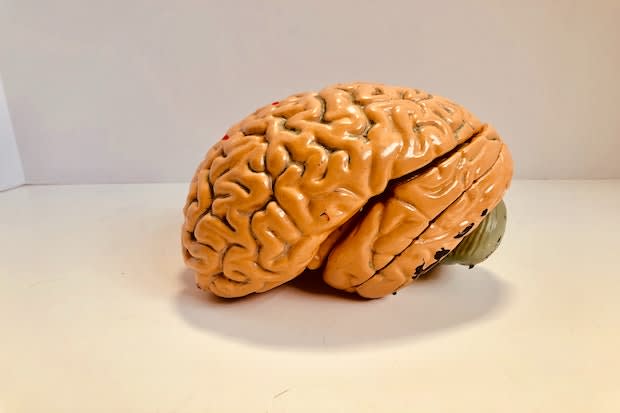Table of Contents
III. Reduce Your Alcohol Consumption
VI. Keep Your Blood Pressure Under Control
Risk of Dementia
All of us want to live a long and healthy life, but the risk of dementia concerns many older adults. There has been extensive research on dementia, but there is no single cure that can prevent this disease's development. Dementia is a complicated condition that has many forms and occurs for several different reasons. Because this disease varies so much, diagnosis and treatment can be difficult, especially if dementia is in the advanced stages.
There may be no cure for dementia and Alzheimer's, but several things a person can do to reduce their risk factors and maximize the chances of lifelong brain health. Along with brain-healthy practices, your doctor may recommend medications like Namenda (memantine) (and Namenda solution) and Aricept (donepezil), which is also available in orally disintegrating tablets. Read on to learn more about ways to reduce your risk of developing dementia. [1]
A healthy diet is important for everyone, but reducing processed foods can improve your brain health. Many of the foods that may worsen memory loss are common American staples, so you may have to make an effort to cut these foods out of your diet. Foods like processed meats, cheeses, pasta, and white bread can spike blood sugar and cause inflammation. This inflammation can affect brain health over time and increase the rate of Alzheimer’s. You may want to avoid: Processed cheeses: Overly processed cheeses, like American cheese and mozzarella sticks, contain proteins that build up in the body. These proteins have been associated with the proteins that cause Alzheimer’s in the brain. Processed meats: Many smoked meats contain nitrosamines, making the liver produce toxic fats that negatively impact the brain. White foods: Naturally colorful foods are typically healthier than white and beige-colored foods. White foods are usually packed with sugar and spike insulin production, and send toxins to the brain. White sugar, white rice, and white bread should be avoided if possible. [2] Consuming too much alcohol can be dangerous for the body. A glass or two of wine a week is not bad, but excessive alcohol consumption can damage the brain over time. Researchers have found that alcohol does not cause dementia, but it is a risk factor. If you regularly binge drink, then your brain may be affected. Binge-drinking involves the consumption of an excessive amount of alcohol in a short period. Research by the Alzheimer's Disease International found that those who engaged in binge-drinking or drank heavily were more likely to develop Alzheimer's disease or another form of dementia. Those who engaged in moderate drinking had a lower risk of dementia. Excessive alcohol use can reduce the brain's white matter over a long period, which is essential in transmitting signals between the brain regions. [3] The Alzheimer's Research & Prevention Foundation has found that regular exercise can reduce your risk of Alzheimer's and dementia. Exercise is so beneficial that it can reduce your risk by up to 50 percent. If possible, you should aim for at least 150 minutes of exercise a week. It is essential to get your heart rate up, so try to make these exercises moderately intense. Ideally, you'll want to combine cardio exercise and strength training for optimal results. If you participate in weight training, it can increase your muscle mass, which increases your brain health. If you are over 65, you can participate in strength-training 2-3 times a week. Along with strengthening the body and brain, they can make your balance better, helping you stay agile and avoid future falls. [1] Like every muscle, the brain also needs exercise. Research has found that those who continue to stimulate their brain as they grow older are less likely to get Alzheimer's disease and dementia. One study gave older adults mental training sessions and found positive results. With as few as ten sessions, older adults improved their cognitive functioning in daily activities and continued to show improvements after ten years. Some beneficial mental stimulation techniques can include: Finding a new hobby: Learning something new can be a big brain booster. You can study a new language or take a class to learn a new hobby. To prolong the benefits, you should schedule regular times to practice these new skills. Games, puzzles, and riddles: Participating in brain teasers and strategy games can help retain cognitive associations. These games are more than just a way to fill time; they can keep your brain sharp. Some games you can play include: Keeping your blood pressure under control is vital to the overall health of the body. What’s good for the heart is good for the brain. Blood pressure is a measure of the force of blood against the walls of blood vessels. If this pressure becomes too high, then damage to blood vessels can cause problems throughout the body. This condition is known as hypertension. Over time, high blood pressure can damage tiny blood vessels in the brain, especially in the areas responsible for cognition and memory. Keeping your heart healthy and your blood pressure levels regulated can lower your risk of developing dementia significantly. You can lose excess weight, exercise regularly, and lower your sodium intake to keep your blood pressure at a normal level. [4] If you are taking medications to lower your blood pressure, it is essential to keep up with your treatment regime. In studies conducted by Johns Hopkins, the research found that those prescribed antihypertensive drugs lowered their risk of dementia by a third. [1] Growing older can come with a lot of changes, especially in your social life. Older adults often have grown children who may live far away or may have lost their friends over time. Humans are naturally social creatures, and if we are by ourselves too long, our brains may begin to suffer. This is why it is vitally important for people to stay socially active as they age. Some people are more social than others, but regular face-to-face connections can do wonders for your mood and keeping the brain sharp. If you want to make more friends, there are several things you can do, including: Remaining social is especially important if you are at risk for dementia. Depression is a common complication of memory loss disorders, and having a tight social group can help prevent these unpleasant complications. The content in this article is intended for informational purposes only. This website does not provide medical advice. In all circumstances, you should always seek the advice of your physician and/or other qualified health professionals(s) for drug, medical condition, or treatment advice. The content provided on this website is not a substitute for professional medical advice, diagnosis, or treatment.
Ditch the Processed Foods
Reduce Your Alcohol Consumption
Get Your Body Moving

Stay Mentally Stimulated
Keep Your Blood Pressure Under Control

Stay Social
